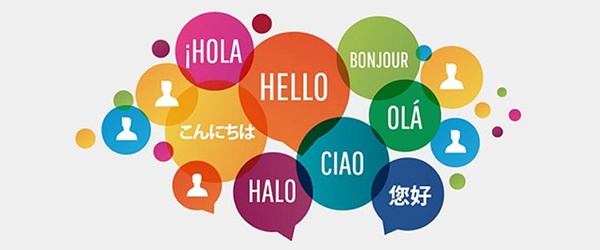For those of us in the primarily English-speaking nations of the western world – from Canada and the United States, to Ireland and the United Kingdom and right down to large parts of Australia and New Zealand – we take language for granted. English, though not the most-spoken native language, is the most spoken language in the world; with its role as a language of business and the language of western pop culture leading to many worldwide learning English as a second language.
It is for this aforementioned reason that many who speak English as their native tongue do not learn a second tongue. For many, there is simply no motivation to do so as they believe they can travel to mostly anywhere in the world without too much of a need to switch to another language. In the UK, just over a third (36%) of adults can speak more than one language fluently (Preply, 2021). This might appear to be a relatively high number than what we might associate with the UK but when compared to the UK’s close neighbor, Germany, it is a shockingly small number in comparison to the 67% of German natives who can speak a second language (World Atlas, 2018).
Language Learning is Cultural Enrichment
Here’s the thing: to learn a new language is to enrich yourself in another culture. When learning a language – let’s use the example of Iberian, Castilian Spanish – you will learn about the country’s native foods (think paella and tapas); you will learn about the Spanish love for coffee (café in Spanish) and various other cultural norms uniquely associated with the country. Then, even better, once you are relatively competent in this language, you can take trips to the country and see your hard work pay off when you successfully make that first coffee or paella order – there is no greater feeling than putting in the work and seeing the results so splendidly achieved.
Whereas there most certainly is an English-speaking arrogance when it comes to vernacular, there need not be – learning a new language brings nothing but benefits and, ultimately, the actual act of learning a foreign tongue can be fun, exciting and challenging in equal measures. Speaking from personal experience, learning a new tongue takes over much of your life, but in a good way. Again, speaking from experience, you will find yourself talking in this new language, out loud, on your drives into work – trying to successfully create the sound which you know you have the ability to make, but can’t quite yet get there (a very common phenomenon for those learning how to roll, or “trill”, an “R”). It takes time, it takes practice but ultimately, it takes you to a whole new world full of exciting new adventures which will bring the benefit of a cultural enhancement unlikely to be achieved by merely visiting another country and continuing to communicate in your native tongue. Feeling a different culture is being able to communicate in the language of the culture, a process called “immersion”, and for anyone – no matter your age – this is a worthwhile experience everyone should get to have at some point. Hopefully, in the near future, more native English speakers attempt to speak a new language.
Whether through the brilliant Duolingo app, through private, local tutors or online schools, there are many ways to learn a language and the beauty of it is that there is literally nothing stopping you from doing so but yourself. Learn a second language and you will gain new experiences, new friends and a whole new worldview.
More From LWOS Life
Make sure to stay tuned to LWOS Life for more on this and other stories from around the world of entertainment, culture and more, as they develop. You can always count on LWOS Life to be on top of the major news in the world of entertainment; whilst also providing you with editorials on everything from beer to movie reviews.

